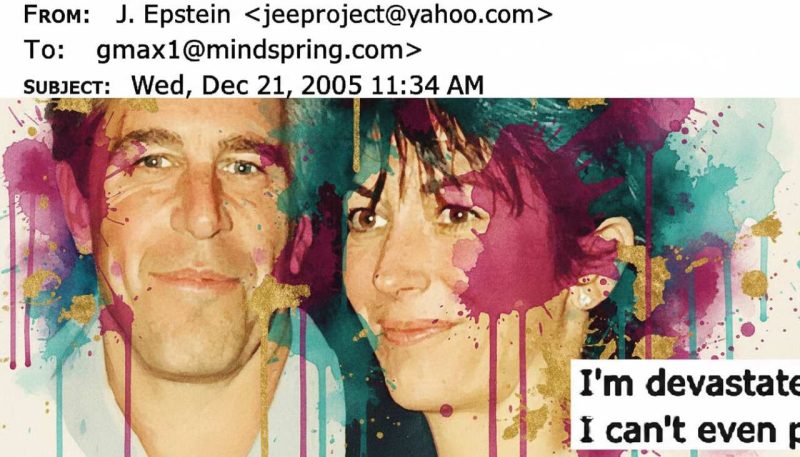Jeffrey Epstein is dead, but his Yahoo inbox is very much alive — and it’s an indictment of how American power actually works.

Bloomberg has obtained more than 18,000 emails from Epstein’s private Yahoo account, spanning roughly two decades, and vetted them through metadata analysis and cross‑checks with public records. Taken together with newly released congressional documents, they don’t give us the mythical “client list.”
They give us something more unsettling: a granular look at how a wealthy sex offender used money, status, and elite institutions to bend the justice system, shape narratives, and keep his access to power even after everyone knew who he was.

This is what we learned.
An 18,000‑Email X‑Ray of Elite Protection
Bloomberg’s cache shows Epstein operating on two tracks at once:
- A criminal enterprise targeting girls and young women.
- A parallel influence machine of lawyers, academics, PR strategists, and political insiders who helped cushion, delay, or reframe the consequences.
The emails detail:
- Callous, systematic recruitment of young women and a long‑running, far more intertwined partnership with Ghislaine Maxwell than either has publicly admitted.
- 18,000+ messages that map his social graph across Wall Street, Harvard, the White House, Hollywood, and media.
- A pattern of professionals “staying true” to Epstein long after his 2008 conviction for sex offenses involving minors, and even after the abuse was widely reported.
This is the architecture of impunity in high resolution: not a single smoking gun, but an interlocking system of reputational laundering and institutional cowardice.
The Network: Lawyers, Scholars, and Crisis Managers on Call
The emails confirm something survivors have long implied: Epstein didn’t just have “friends,” he had specialists.
Lawyers and the Non‑Prosecution Machine
Epstein’s legal team included marquee names like Alan Dershowitz and Ken Starr. The emails show:
- Explicit strategizing to avoid federal sex‑trafficking and money‑laundering charges in the mid‑2000s.
- Draft letters from Dershowitz assuring “Jeffrey is a good person who does many good things,” carefully crafted to reassure skittish friends.
- Epstein pushing talking points back at his own attorneys — suggesting language that cast the federal probe as overreach and framed him as the victim of an overzealous state.
According to reporting on the same trove, these exchanges sit alongside documentation of Epstein’s team negotiating the infamous non‑prosecution agreement that effectively shut down a broader federal case in 2007–08 and limited him to a lenient state sentence. That’s not a broken system; it’s a system exquisitely responsive to wealth.
Academia As Prestige Armor
The emails also expose how aggressively Epstein cultivated top researchers, especially at Harvard and other elite institutions:
- Psychologists, neuroscientists, and geneticists courted him for funding and access, pitching projects on brain “pleasure signatures,” life extension, and even a “Manhattan Project” for AI.
- Epstein was framed as a “patron” with “no boundaries” — in one exchange, a scientist jokes about naming a brain initiative “The Epstein Brain.”
- When charges became public, some scholars didn’t cut ties; they offered book lists and pep talks, urging him to “take a deep breath” and ride it out.
No serious evidence in the emails suggests these academics participated in sex abuse. But they did offer legitimacy, companionship, and cover to a man already under credible investigation for crimes against minors. That’s the part universities still haven’t fully reckoned with.
Professional Image Laundering
One of the more chilling threads involves crisis‑communications consultant Merrie Spaeth:
- She drafts three different “public apologies” for Epstein in 2008, workshopping language about “associating with young women who turned out to be under eighteen.”
- She trains him in a “methodology” for dodging uncomfortable questions: pivot phrases like “on the contrary,” lists of “good words” (smart, brilliant, lucky) and “bad words” (playboy, powerful, pervert), and practice saying, “It’s not appropriate to discuss…” without sounding robotic.
- He internalizes this quickly. Months later, he’s telling the New York Times: “I respect the legal process” — nearly word‑for‑word from the coaching memos.
This is what it looks like when reputation management is weaponized against accountability.
The Trump Problem, in Epstein’s Own Emails
The new Yahoo emails overlap with a separate tranche of roughly 20,000 Epstein‑related documents released to Congress, including messages where Epstein discusses Donald Trump.
Key pieces:
- In a 2011 email, Epstein refers to Trump as “the dog that hasn’t barked”, noting that a victim spent “hours at my house with him” yet “he has never once been mentioned.”
- In a 2019 exchange with journalist Michael Wolff, Epstein writes that Trump “knew about the girls as he asked Ghislaine to stop.”
- Other messages characterize Trump as “borderline insane” and “f***ing crazy,” while claiming intimate knowledge of his behavior.
So far, none of these communications has been backed by independent evidence establishing criminal conduct by Trump. Democrats on the House Oversight Committee have highlighted the emails to press for full release of DOJ’s Epstein files; Republicans accuse them of cherry‑picking and note that some victims publicly said they did not witness wrongdoing by Trump.
Instead of simply releasing all the files, Trump has:
- Labeled the controversy “the Epstein Hoax,” insisting it’s a distraction from his administration’s problems.
- Directed his attorney general, Pam Bondi, to investigate Epstein’s ties to Democrats and institutions — Bill Clinton, Larry Summers, Reid Hoffman, JPMorgan Chase — framing the issue as partisan warfare rather than a systemic failure the public has a right to see.
That posture is the point: keep the focus on political enemies, not on transparency or on the state’s obligations to survivors.
Larry Summers and the Comfort of Proximity
The Yahoo emails are only one piece of the puzzle. Congressional releases and follow‑up reporting have surfaced years of cordial exchanges between Epstein and Larry Summers, former Treasury secretary, Obama economic adviser, and Harvard president.
The communications show:
- Personal gossip, crude riffs about gender and elite admissions, and Summers turning to Epstein for philanthropic advice and access for his wife’s projects.
- Friendly messages extending well into 2019 — months before Epstein’s final arrest, after his 2008 conviction was well known.
- Summers later expressing “great regrets” and calling the association a major error of judgment.
What matters here isn’t whether Summers committed a crime — there’s no evidence of that. It’s that a pillar of the Democratic economic establishment chose proximity to a convicted sex offender, because the social and financial upside seemed to outweigh the moral and reputational risk.
For survivors, that’s the familiar pattern: powerful men weighing their social comfort against other people’s trauma — and choosing comfort.
Following the Money — and the Case That Never Was
One of Bloomberg’s features, drawn from the same Yahoo trove, documents a largely hidden financial‑crimes investigation that ran alongside the 2007 sex case:
- Prosecutors examined potential money‑laundering and related financial offenses tied to Epstein’s operations.
- The emails show Epstein and his lawyers going to war to keep those charges off the table, leveraging the same elite network and arguments about overreach and fairness.
- Ultimately, the non‑prosecution deal shielded him from broader federal exposure, focusing the case on narrower sex‑offense charges and leaving the financial component largely buried.
That’s the part that should set off alarms for anyone who cares about democratic governance: a system where complex, white‑collar crime intertwined with sexual exploitation can be quietly negotiated away.
Epstein’s Library: A Mirror of a Certain Elite Mindset
Bloomberg also used Yahoo receipts to reconstruct what Epstein was buying and presumably reading in his last decade:
- Multiple books on narcissism, negotiation, sex and power, and how to manage or “treat” people like him.
- Works on Trump, high finance, Vatican intrigue, and middlebrow erotica.
- In the final weeks of his freedom, he buys The Annotated Lolita and Nietzsche’s The Birth of Tragedy, along with a parenting book despite not being known to have children.
No one’s bookshelf is a legal document. But as a psychological artifact, it fits: a man obsessed with power, manipulation, self‑justification — and with stylized, aestheticized versions of the harm he inflicted in real life.
Why This Matters for Democracy Now
This isn’t just a lurid coda to the Epstein saga. It’s a case study in how liberal democracies can fail upward:
- Law enforcement bent toward a defendant with the right lawyers and the right Rolodex.
- Universities and banks willing to trade moral hazard for donations and access.
- Political actors who now use the case as a partisan weapon rather than a mandate for transparency and reform.
If you care about democratic norms, the lesson isn’t “find the client list.” It’s:
- Strengthen rules that limit prosecutorial backroom deals in high‑profile cases.
- Impose real transparency on institutions that took Epstein’s money and lent him credibility.
- Force the Justice Department to release as much of the Epstein file as possible, with redactions only where necessary to protect survivors, not reputations.
The Yahoo inbox is a record of how many people were willing to orbit a known predator because the benefits were just that tempting. The question now is whether the rest of us are willing to look at that clearly enough to change anything.
